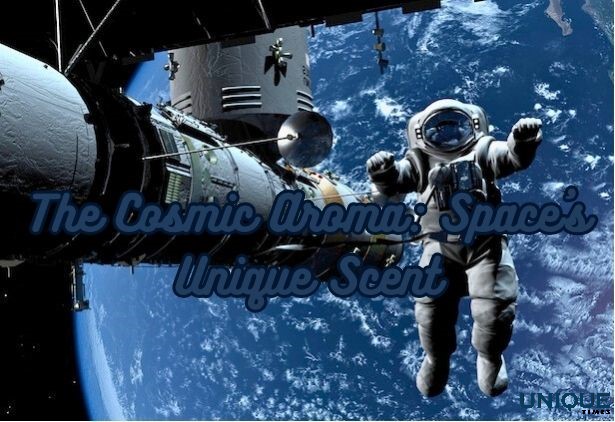In the Depths of Space: The Unusual Aroma of the Cosmos

When we think about space, we often envision a vast, silent void filled with stars, planets, and cosmic wonders. However, there’s more to the cosmos than meets the eye—especially when it comes to your sense of smell. According to astronauts who have ventured beyond our planet’s atmosphere, space has a distinct and rather peculiar scent. Imagine the aroma of seared steak, hot metal, and welding fumes, and you’ll start to get a whiff of what the universe has to offer your olfactory senses.
A Universe of Scent
Space, with its near-perfect vacuum and extreme conditions, might not seem like a place where you’d encounter any smells at all. After all, there’s no air in space to carry odors like we experience here on Earth. So, how is it possible for astronauts to describe a unique scent when they step outside their spacecraft?
1. The Source of Space’s Aroma
The intriguing scent of space can be attributed to a combination of factors, primarily involving the exposure of spacecraft materials to the harsh environment of space. Here’s what contributes to this otherworldly bouquet:
a. Vacuum: The absence of air in space means that when astronauts return to their spacecraft, they carry the scent of space with them. The vacuum of space allows the scent particles to cling to their spacesuits and equipment.
b. Solar Radiation: Space is bombarded with intense solar radiation, which can cause materials to break down on a molecular level. This process, known as outgassing, releases volatile compounds from the spacecraft’s surfaces.
c. Microgravity: The unique microgravity environment of space can alter the way molecules interact, potentially enhancing the perception of certain odors.
2. The Steak, Metal, and Welding Fumes
So, what do astronauts mean when they describe the scent of space as reminiscent of seared steak, hot metal, and welding fumes?
a. Seared Steak: The “seared steak” component of the aroma is believed to be linked to the outgassing of heated, organic materials on the spacecraft. These compounds, when released into the vacuum of space, can produce a scent similar to that of cooking meat.
b. Hot Metal: The “hot metal” component likely arises from the spacecraft’s exposure to intense solar radiation, causing certain metal surfaces to heat up and release metallic odors.
c. Welding Fumes: The presence of “welding fumes” in the mix can be attributed to the manufacturing processes used to construct spacecraft. These processes leave behind traces of welding residue, which can contribute to the overall aroma.
3. A Whiff of the Unknown
Despite these intriguing descriptions, the exact composition of space’s scent remains a bit of a mystery. It’s challenging to replicate the conditions of space on Earth for a thorough analysis. Furthermore, individual astronauts may perceive the scent differently, adding to the complexity of the experience.
In the end, while space may be devoid of air and traditional scents, it’s not entirely devoid of aroma. The unique combination of factors in the cosmos gives rise to a distinctive and memorable smell that astronauts carry with them as a testament to their extraordinary journeys.
So, the next time you gaze up at the night sky and contemplate the mysteries of the universe, remember that space isn’t just a visual spectacle—it’s a sensory one too, with its own peculiar fragrance that lingers in the memories of those who venture into its depths.
Picture Courtesy: Google/images are subject to copyright








